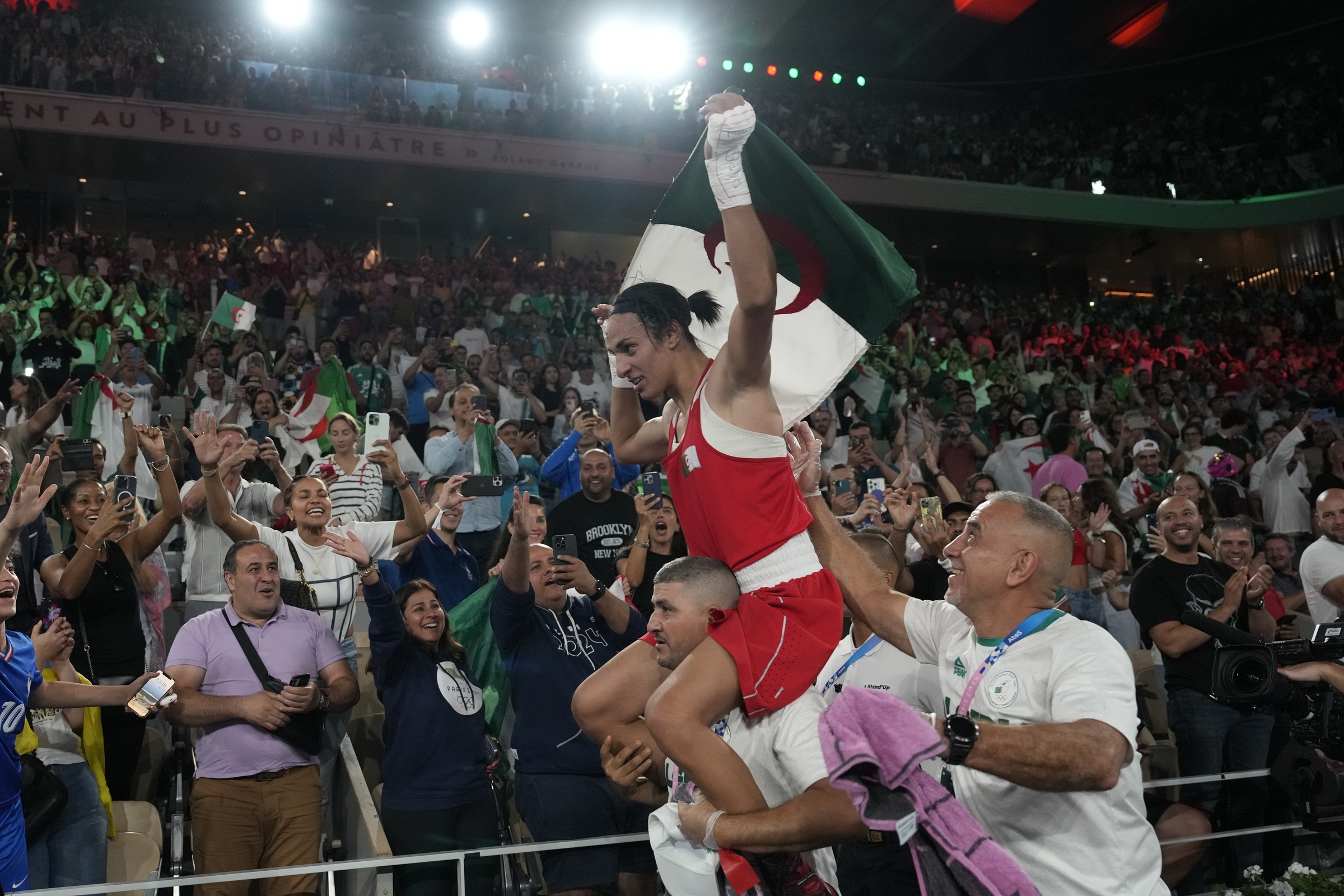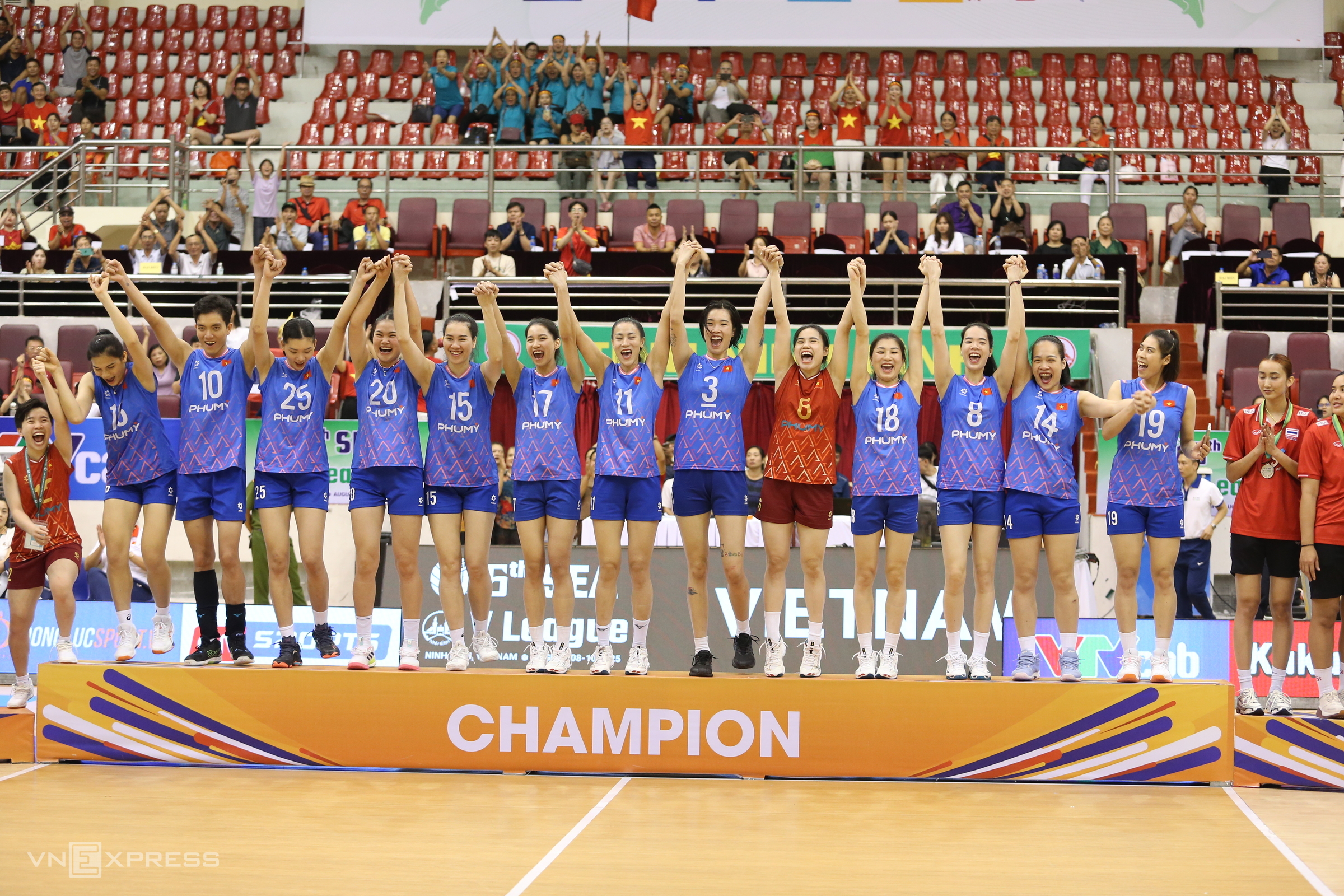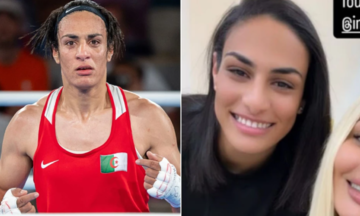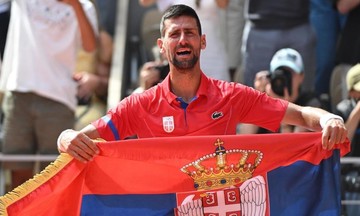Gender in women's sports is a contentious issue in elite athletics. The 2024 Paris Olympics saw two such cases with boxers Imane Khelif (Algeria) and Lin Yu Ting (Taiwan). Recently, the International Volleyball Federation disqualified a Vietnamese athlete from the 2025 FIVB Volleyball Women's U21 World Championship, reportedly due to gender-related concerns.
This topic resurfaced in Thailand, the host of the 33rd SEA Games, during a press conference on 15/8. Thai media questioned whether the organizing committee would implement stricter testing for female athletes.
 |
Algerian boxer Imane Khelif celebrates with fans after winning against Chinese boxer Yang Liu in the women's 66kg boxing final at the 2024 Paris Olympics on 9/8. Photo: AP |
Algerian boxer Imane Khelif celebrates with fans after winning against Chinese boxer Yang Liu in the women's 66kg boxing final at the 2024 Paris Olympics on 9/8. Photo: AP
SAT Director General Kongsak Yodmanee explained that athlete verification depends on the sport and the respective international federation's regulations. "Some sports, like combat sports, require testing," Kongsak said. "Others don't emphasize this issue, as physiological matters don't significantly impact competition."
Combat sports, ball sports, and physically demanding sports like swimming and athletics may require testing. Gender is less of a concern in performance-based sports like archery and shooting.
For the 33rd SEA Games, SAT delegated oversight of regulations and technical aspects of competition to each federation. "We only supervise the entire process", the SAT Director General said. "However, if any sport requires testing, SAT mandates adherence to international regulations, and athletes are not allowed to evade it."
SAT's approach assigns responsibilities to each member federation, unlike the Olympics' standardized approach. At Paris 2024, athlete backgrounds were verified through passports and nationally recognized documents.
 |
Vietnam defeated Thailand 3-2 to win the second leg of the 2025 SEA V-League women's volleyball tournament at Ninh Binh Gymnasium on 10/8/2025. Photo: Hieu Luong |
Vietnam defeated Thailand 3-2 to win the second leg of the 2025 SEA V-League women's volleyball tournament at Ninh Binh Gymnasium on 10/8/2025. Photo: Hieu Luong
The International Olympic Committee (IOC) believes that gender verification should consider human rights alongside scientific factors. In 11/2021, the IOC issued a framework on this matter, stating it doesn't require universal gender testing or impose testosterone limits at the Olympic level. However, each international federation can establish its own regulations based on sufficient evidence, respect for human dignity, and avoiding unnecessary medical interventions for athletes.
This standard caused conflict between the IOC and the International Boxing Association (IBA) regarding Khelif and Lin Yu Ting. The IBA argued for tests beyond the standard, such as chromosome or testosterone level analysis. However, the IOC maintained these tests don't definitively prove an athlete's gender and violate the standards set for the Paris Olympics.
Since the mid-20th century, gender verification has evolved from visual inspections to chromosome and testosterone level testing. Yet, all methods have faced ethical and medical criticisms. No method provides 100% accuracy.
The Athletics Association of Thailand must adhere to World Athletics (WA) regulations. From 1/9, all athletes competing in women's events at international competitions within the WA ranking system must undergo genetic testing. Athletes must take the test at least once in their lifetime, providing cheek swab or dried blood samples.
This method was used in the 1992 and 1996 Olympics. The IOC later discontinued it due to its inaccuracy in determining gender and its discriminatory nature towards women with Differences of Sex Development (DSD). However, WA assures high accuracy and extremely low false positive/negative rates.
Athletes can appeal results to the Court of Arbitration for Sport (CAS). Those refusing the test are banned from ranked events but can participate in unranked ones.
Hieu Luong












